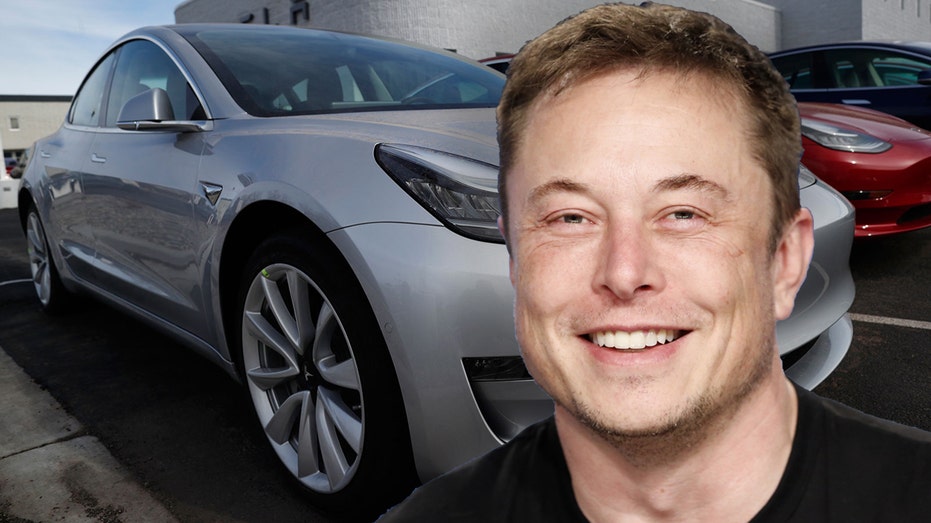Tesla, Elon Musk have 'proven the skeptics wrong'
'Tesla bulls have a lot to be thankful for in their stockings'
2019 was supposed to be a disastrous year for Tesla – it wasn’t.
CEO Elon Musk’s battle with the U.S. Securities and Exchange Commission, increased competition from both start-ups and traditional automakers and declining government subsidies for cars built at Tesla's Fremont, Calif., factory were all supposed to be headwinds.
Instead, shares of the electric-car maker have gained almost 28 percent this year, in line with the S&P 500, despite the threats to Tesla’s business. The gains have saddled short-sellers, or those betting Tesla's stock would decline, with mark-to-market losses of $2.46 billion through last week, according to data from the financial analytics firm S3 Partners. The naysayers still had a $10.3 billion bet against the company, the data showed.
| Ticker | Security | Last | Change | Change % |
|---|---|---|---|---|
| TSLA | TESLA INC. | 411.11 | +13.90 | +3.50% |
“Tesla bulls have a lot to be thankful for in their stockings as ultimately Musk and Fremont have proven the skeptics, including ourselves, wrong in the near term through strong Model 3 consumer demand and profitability that looks to be on an upward trajectory" for the last three months of the year, Dan Ives, an analyst at Wedbush Securities, wrote in a note sent to clients Thursday.
UBER CO-FOUNDER TRAVIS KALANICK SEVERS ALL TIES, DUMPS LAST 5.8M SHARES
He believes Tesla should easily be able to hit its fourth-quarter delivery target of between 360,000 and 400,000 vehicles for 2019. Doing so would mean a 45 percent to 65 percent increase from last year.
Ives says Tesla’s ability to sustain profitability in both Europe and China would allow the stock to “open up a new chapter of growth.” He concedes the company’s debt load remains an “albatross” around its neck and that it will need strong cash flow for the next several years to fund Musk’s myriad initiatives, from robotaxis to a European buildout, and appease investors.

Shares have rallied 68 percent since Oct. 23, when Tesla posted a surprise third-quarter profit of $143 million and said it expects to be profitable going forward.
Last week, Tesla shares hit $420 for the first time, reaching the price at which Musk said he had secured funding to take the company private. The Securities and Exchange Commission said that claim was unfounded, and Musk ultimately reached a settlement with the agency in which he agreed to step down from the automaker’s board for at least three years. Both Musk and Tesla agreed to pay $20 million fines.
Wall Street as a whole remains bearish on Tesla. Of the 33 analysts surveyed by Refinitiv, 11 say “buy,” nine suggest “hold” and 13 recommend “sell.” They have an average 12-month price target of $293 – more than 32 percent below where shares were trading Thursday.
Past performance is one of the reasons for the trend. The automaker lost $976 million in 2018 and $1.1 billion in the first two quarters of this year. Earlier this week, a team of Morgan Stanley analysts led by Adam Jonas assigned a $250 price target to Tesla, arguing the electric-vehicle maker “may have a big lead today,” but they expect that to “change over time.”
They say the start-up Rivian, which raised $2.8 billion in 2019 – more than Ford and General Motors’ combined spending on battery-electric vehicles this year, is the latest emerging threat to Tesla’s 80 percent stranglehold on market share.
CLICK HERE TO READ MORE ON FOX BUSINESS
“We are not bullish on Tesla longer term, especially as, over time, we believe Tesla could be perceived by the market more like a traditional" automaker, the Morgan Stanley analysts said in a separate note sent to clients on Monday. “We are prepared for a potential surge in sentiment through the first half of 2020 but question the sustainability.”




















